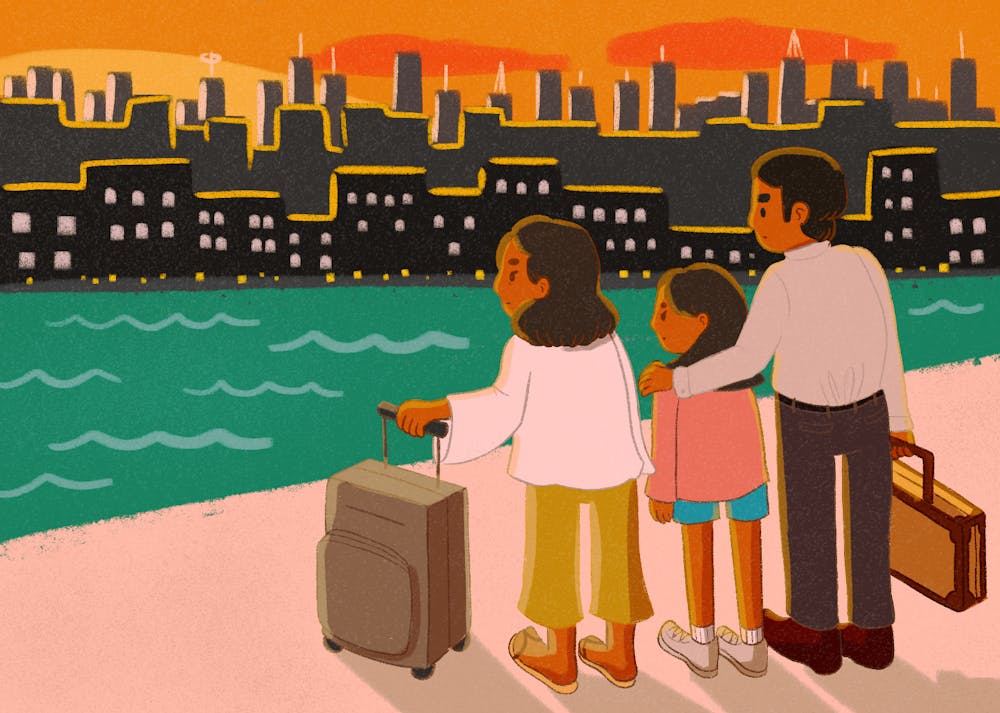In the face of all the hardships of the world, remembering the things we are grateful for can be reassuring. But constantly being grateful can also lead us to blatantly ignore all our problems.
I spent half my childhood in India and the other half as an Indian immigrant in the United Arab Emirates. I was taught to practice gratitude at every turn of my life. While this made me content, it also conditioned me to feel guilty for asking for more.
For first-generation immigrants, a lot of uncertainty looms over their social and economic stability in the initial years at least. Extracurricular activities become a luxury for the children in these families.
I learned very quickly that I ought to be grateful for having a good education and a comfortable home. I could take either dance or guitar lessons, not both. Not because they were expensive, but because being in a foreign country with no familiar support system makes parents excessively cautious about spending time and money.
It didn't help that laws concerning immigrants were unforgiving. We could not afford to put a toe out of line.
The minutiae of immigrant laws were constantly changing. It was our responsibility to keep up with these changes, some of which were culturally insensitive. But I was grateful I was in a safe environment where I was "allowed" a degree of freedom.
My high school had many sexist rules and more cultural insensitivity, but I was grateful because it had smaller classes and better infrastructure than what I had experienced back home. I was grateful that I was in a country with laws against corporal punishment.
My family was grateful to a foreign government for permitting us to exercise a fraction of the rights that citizens had, as though our contribution to their society and economy in service and expenditure had no value. It was as though we were the sole beneficiaries of that relationship.
I soon grew up to be an adult who used gratitude as a coping mechanism even after I left the UAE.
I often felt frustrated at all the restrictions in my life. My family constantly advised me to lead a sheltered life. My college in India had a sexist curfew only for the women's dorms. But I placated myself with the thought that these were all for my protection and I should be grateful I had people who cared so much about me.
I was grateful for a set of measures that curbed my freedom and limited my scope for exploration under the guise of protecting me. I checked all my indignation at a society that cared more about maintaining peace and order at any cost than it did about empowering me.
It took me years to grow out of this habit.
Once I did, I looked back at my childhood and realized a lot of what is "given" to immigrants is actually their right. We should not have to feel grateful for taking what is rightfully ours. When people with privilege claim to have "allowed" a group of people to do something, they are not being inclusive. They are gaslighting us.
The gratitude lessons of my childhood made it very difficult for me to recognize gaslighting for a long time.
When I read news stories about women's rights activists where the "male savior" got more attention than the women behind the movement, I would often fail to see the disguised privilege gap. This also applied to news about racial violence.
I would always find myself immensely grateful to the people who were using their privilege to help the victims. I did this to suppress the instinctive anger and fear that I felt at hearing these pieces of news.
Over the years I have unlearned a few unhelpful coping mechanisms. The forced gratitude practice is one of them. And while I am grateful for the many ways I am fortunate, I now actively try not to cloak real problems.
Positive thinking can be harmful if one doggedly ignores the dark side of life. Letting go of this habit is understanding that we deserve more than what society has convinced us.
Reach the reporter at abhilasha.mandal@asu.edu and follow @AbhilashaMandal on Twitter.
Like State Press on Facebook and follow @statepress on Twitter.




